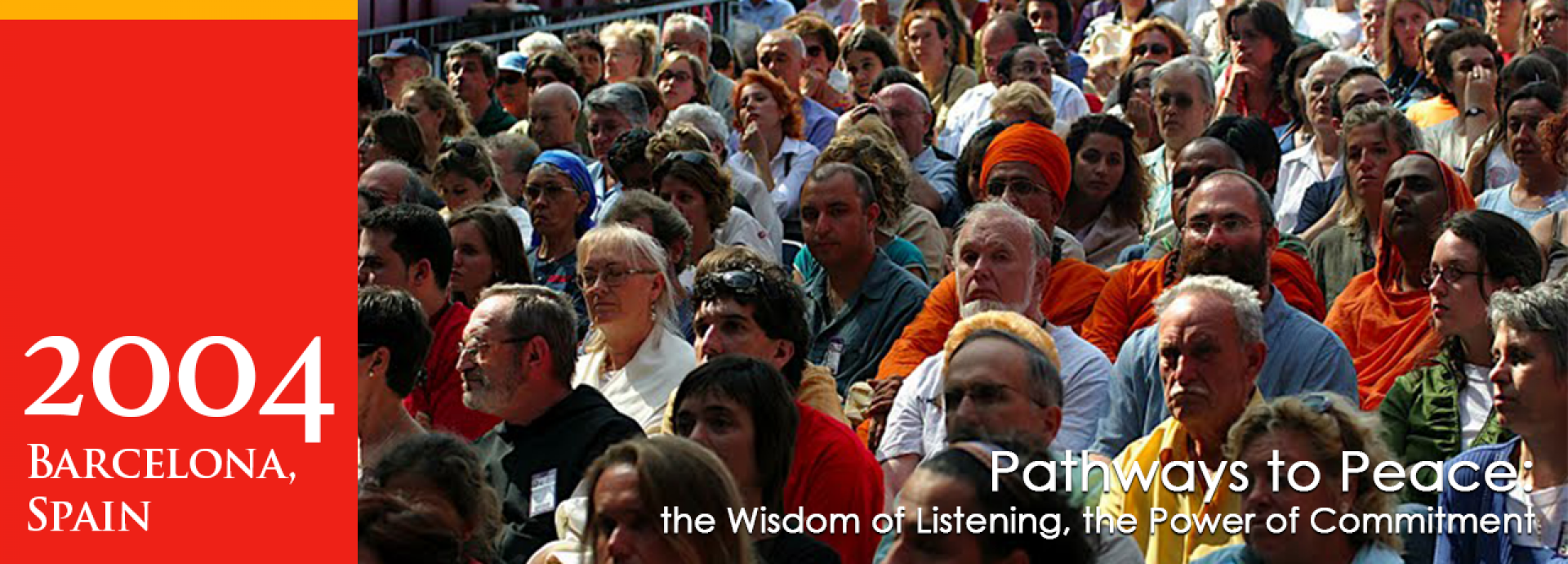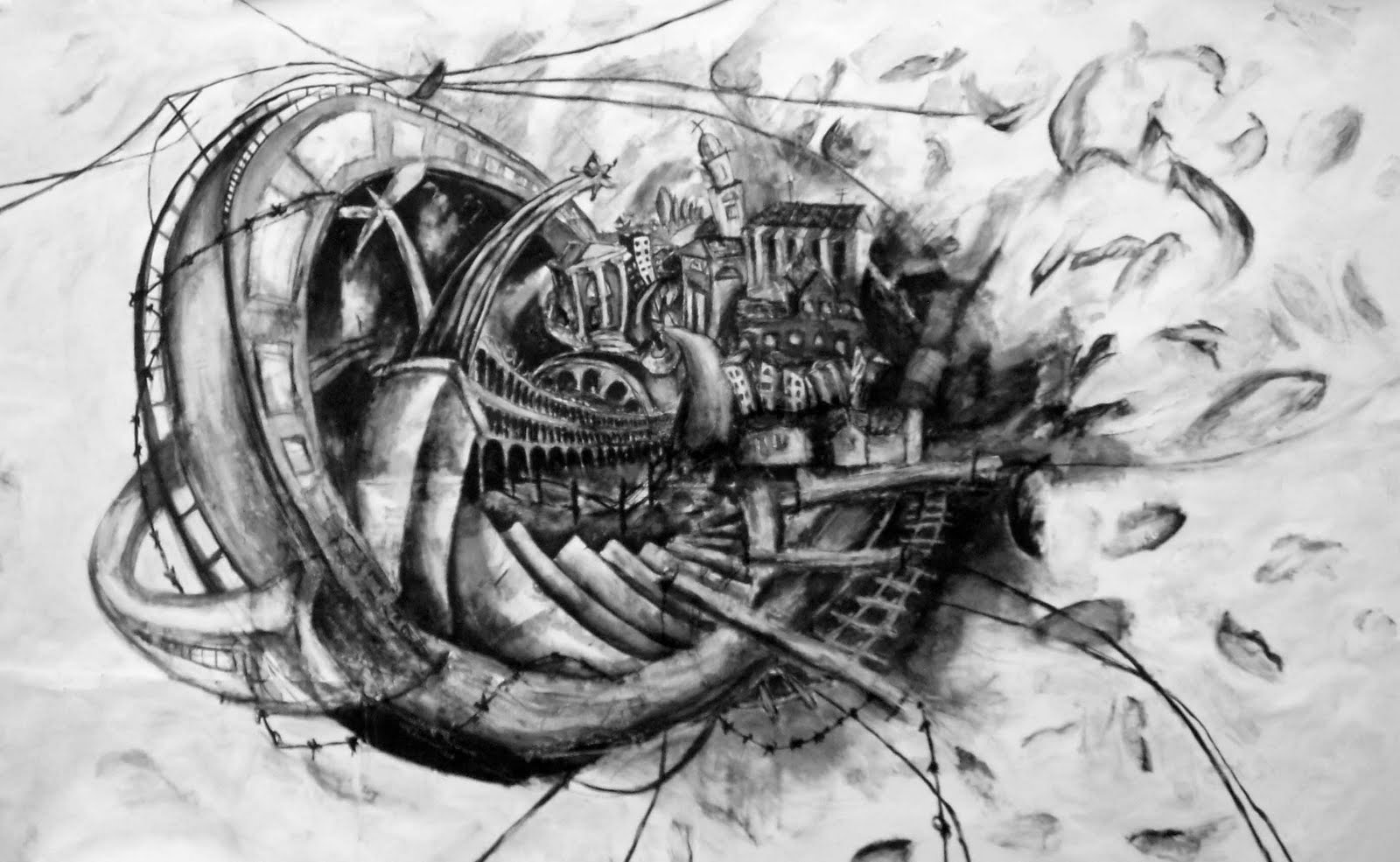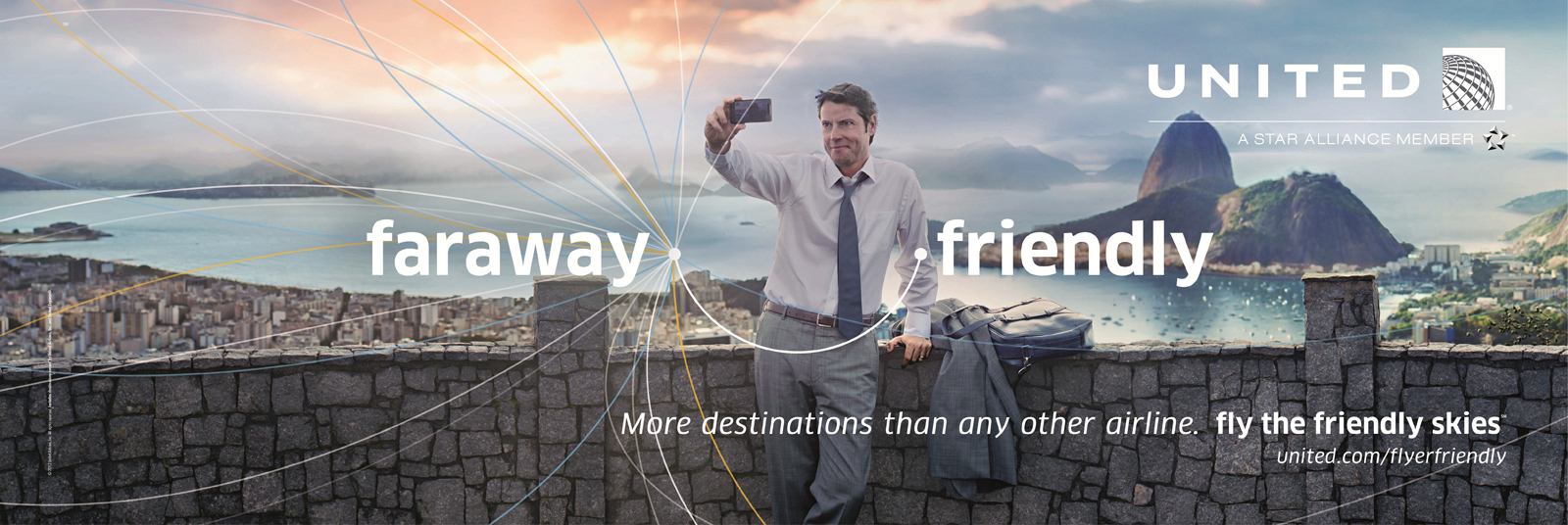- Details
- Written by: Kamran Mofid
- Hits: 2431
Globalisation for the Common Good Initiative (GCGI) was proud and honoured to have been invited to organise a special programme on 'Faiths and Globalisation' at the Barcelona Parliament (see below)

Photo: parliamentofreligions.org
The 2004 Parliament of the World’s Religions—one of the world’s largest and most inclusive interreligious events—welcomed 9,000 participants from 74 countries to the site of Barcelona’s Universal Forum of Cultures. This unique gathering, held July 7-13, was organized by the Council for a Parliament of the World’s Religions in partnership with the Universal Forum of Cultures—Barcelona 2004 and in association with the UNESCO Centre of Catalonia. People of faith, spirit and goodwill came together to encounter the rich diversity of the world’s religious and spiritual traditions, listen to each other with open hearts and minds, dialogue for mutual understanding, reflect on the critical issues facing the world and commit to discovering new pathways to peace.
Fourth Parliament of the World’s Religions
Pathways to Peace: the Wisdom of Listening, the Power of Commitment
Programme on
“An Inter-faith Perspective on Globalisation for the Common Good”
11th July, 2004
How can spirituality and social action be connected?
'You must be the change you wish to see in the world.'-Gandhi
‘One response to a world full of suffering people is that we must begin with ourselves, with our own spiritual transformation. If we can change our own hearts and minds, we can change the world. Another response is that we must urgently address suffering through social action. But will social action not grounded in a broader spiritual or ethical framework inevitably substitute one ill or ideology for another? Do we have to start in one place or the other? Is this merely a balancing act, or is there a dynamic way to engage both spirituality and action?’
How can religious and spiritual communities work with other guiding institutions for the common good?
’How can religious and spiritual communities become informed and effective partners in addressing real world problems? How can other guiding institutions become aware and appreciative of the unique role that religious and spiritual communities can play to build a better world in the interest of the common good?’
Session One: 11.30-1.00 pm, Room 117, CCIB
Chair and Introductory Remarks: Dr. Kamran Mofid
Founder Convenor: An Inter-faith Perspective on Globalisation for the Common Good.
(The Session will commence with prayer, read by Jean Lesher from her book, Prayers for the Common Good).
Bhai Sahib Mohinder Singh, Chairman, Guru Nanak Nishkam Sewak Jatha, Birmingham, UK
The Contribution of Inter-faith Work to a Just and Peaceful World
Ms. Audrey Kitagawa, President, Light of Awareness International Spiritual Family, USA
The Centrality of Spirituality and Ethics in Globalised World
Dr. Margarete Czerny, East-West Cooperation, Austrian Institute of Economic Research, Vienna, Austria
A New Dimension for Globalisation- New Challenges for Building Global Peace
Sayyed Nadeem Kazmi, Director, International Development, Al- Khoei Foundation,
London, UK
Global Governance: A Plea for Multilateral Engagement with the Challenges of Global security
Dr. Raymond Hamden, Director, Comprehensive Medical Centre, Dubai, UAE
Inter-faith Communications and Cultural Diversity
Dr. Keyvan Tabari, Attorney-at-Law, San Francisco, USA
Inter-faith Dialogue and the Emerging Global Legal System
Session Two: 3.00-4.30 pm, Room 117, CCIB
Chair and Introductory Remarks: Dr. Kamran Mofid
Founder Convenor: An Inter-faith Perspective on Globalisation for the Common Good.
(The Session will commence with prayer, read by Jean Lesher from her book,
Prayers for the Common Good).
Dr. Josef Boehle, Research Fellow in Globalisation, Religion and Politics,
University of Birmingham, UK
Religions and Cooperation for the Common Good
Rev. Marcus Braybrooke, President, World Congress of Faiths, Oxford, UK
Wealth Creation for the Common Good: An Inter-faith Perspective
Prof. Toh Swee-Hin, Director, Multi- Faith Centre, Griffith University, Australia
Education for an Engaged spirituality: Building a Compassionate World
Ms. Priya Sridharan, Comprehensive Medical Centre, Dubai, UAE
Spirituality VS Religions in Today’s World without Borders
Sr. Beatrice Mariotti, Headmistress, St. Mary’s Catholic High School, Dubai, UAE and Dr. Judith Rahima Jensen, Director, Educational Solutions, USA
St. Teresa of Avila and Rabiya Al Adawiya: Beyond Self and Selfishness
Click here to see the Parliament’s full programme, Barcelona, 2004
- Details
- Written by: Kamran Mofid
- Hits: 2455
Under neoliberal capitalism and pseudo-democracy “Future has been cancelled”
’Humanity is fleeting: The world that we exist in is chaotic’

Photo:cosmosluce.blogspot.co.uk
‘For the last forty years the vision of our societies as progressive and heading in a better direction has been systematically eroded. Under the permutation of capitalism that began in the 1970s, gained traction in the 1980s, appeared victorious in the 1990s, and faced serious problems in the late 2000s — the future has been cancelled. Today, it is common sense to presume that climate change and its effects will wreak havoc on the environment, that real wages will continue to stagnate, that jobs will become more precarious, that retirements and pensions will be eliminated, and that inequality and the exploitation of society’s weakest will only worsen. This is the future offered by the variants of neoliberal political economy that dominate the developed world today.’
‘We see this erasure of the future in the political left as well — much of which has been reduced to a conservatism which desperately seeks to merely retain the remaining parts of the welfare state and social democracy. “Against austerity!” is the rallying cry of this mainstream conservative left today. This is to say that in the leading European nations much of the established left has been reduced to trafficking in the politics of fear, rather than the politics of freedom and the project for a more just society. All the while, the long-term prospects for social democracy are slowly eroded through technological innovation, financial engineering, and ever-more flexibilised job markets. While attempts to safeguard the gains of social democracy are to be lauded, they also remain totally inadequate. Faced with the newfound rapaciousness of neoliberalism after the 2008 financial crisis, such politics might be capable of minor victories, but the recent tide of history appears to flow in the opposite direction only.’
- Details
- Written by: Kamran Mofid
- Hits: 2588

Dear Mr. Muñoz,
I am sure you will agree with me that, it must be very sad for you, personally, and disastrous for United Airlines, after the inhumane fiasco of the other day, when the poor and helpless Dr. Dao was forcefully and violently dragged and removed from a United Airlines plane in Chicago. This ugly and unnecessary incident has sparked international outrage and turned into a public relations nightmare for the airline which you lead. It is said that Dr. Dao suffered a concussion and broken nose and lost two front teeth, and would need reconstructive surgery.
What had he done for such a horrible beating up? Was he guilty of anything? No. He was not at fault. He was not guilty. I hope United Airlines was not making an example of him, so that next time around, nobody will dare to say no to give up their seats when you are overbooked!
